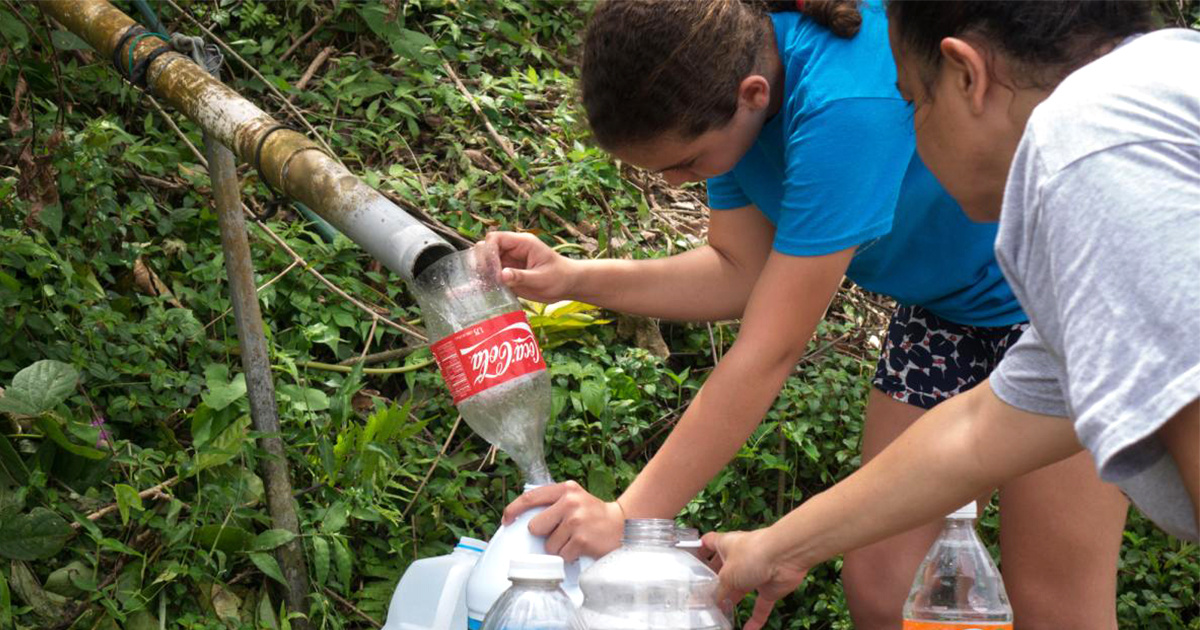
Desperate Puerto Ricans Are Drinking Water From Hazardous Waste Sites

Desperate for water, Puerto Ricans are resorting to any available sources, such as this stream in Cayey. Angel Valentin / NPR
The ranking Democrat on the House Homeland Security Committee called for an investigation into the availability of potable water in Puerto Rico following reports Friday that residents are scrounging for water from hazardous waste sites.
After the U.S. Environmental Protection Agency (EPA) confirmed residents were trying to access water from three Superfund sites, and following a CNN story Friday featuring Puerto Ricans taking water from a fourth site, Rep. Bennie Thompson (D-MS) wrote a letter to acting DHS Secretary Elaine Duke asking if she knew about the situation and calling the reports “beyond disturbing.”
Food, water, electricity and medical care is still scarce three weeks after Hurricane Maria blew through the island, and more than one-third of residents do not have a safe, available source of drinking water. While 85 percent of the island still remains without electricity, Governor Ricardo Rosselló said Sunday he hopes that power will be almost totally restored by mid-December.
As reported by The Verge:
“The Environmental Protection Agency received reports that people were trying to access water at toxic Superfund sites, according to a news release issued on Wednesday. These sites are at Caguas, San German, and Dorado, an agency spokesperson clarified in an email. The EPA advised people against tampering with or drinking from sealed and locked wells. But without access to safe water, people are forced to make the terrible choice of drinking from a risky source, or nothing at all.
The agency investigated the three sites that were reported, plus two additional ones in Cabo Rojo and Maunabo, an EPA spokesperson said. Although they’re scattered across the island, all are groundwater sources contaminated with industrial solvents used for metal degreasing and dry cleaning. Exposure to these solvents can have dangerous health effects, such as harming the liver and increasing cancer risk. But, dehydration is dangerous too.”
For a deeper dive:
DHS letter: CNN, The Hill. Water scarcity: CNN, NPR. EPA: The Verge. Aid efforts: LA Times, InsideClimate News. Electricity: CNN, New York Daily News. Commentary: Washington Post, Jennifer Sciubba and Jeremy Youde analysis
For more climate change and clean energy news, you can follow Climate Nexus on Twitter and Facebook, and sign up for daily Hot News.

 233k
233k  41k
41k  Subscribe
Subscribe 